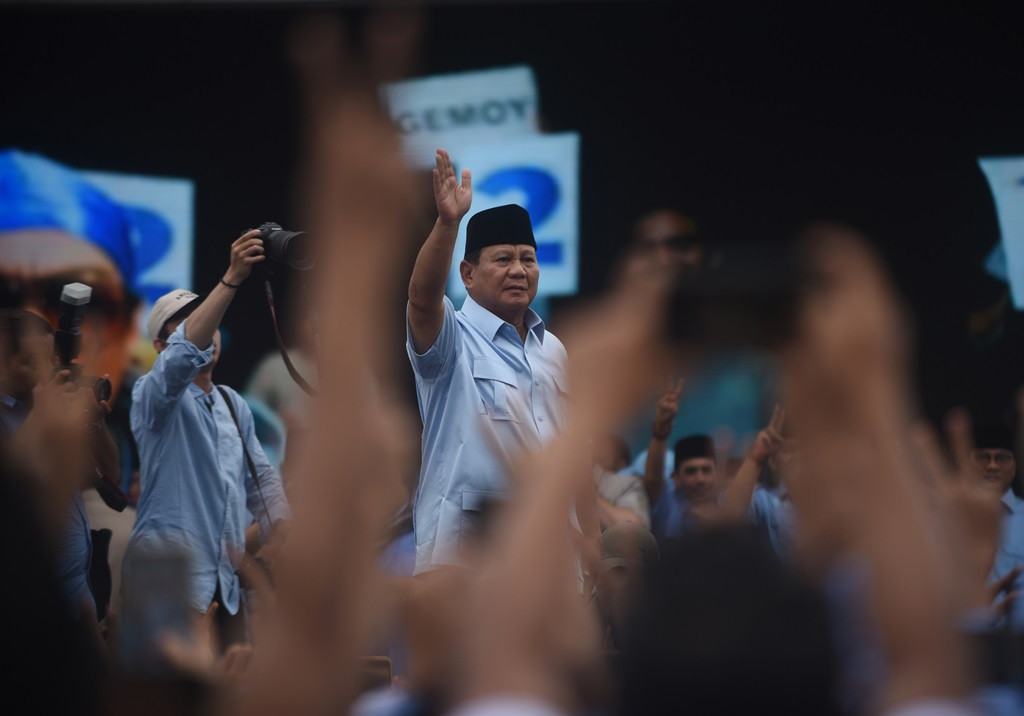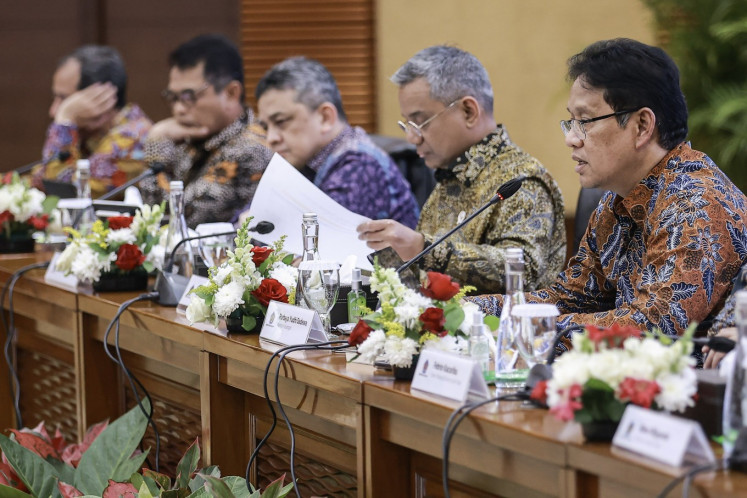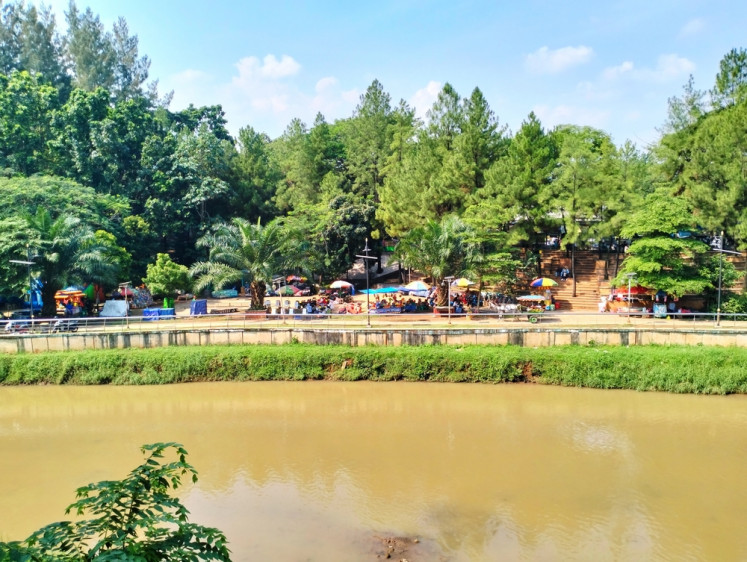Popular Reads
Top Results
Can't find what you're looking for?
View all search resultsPopular Reads
Top Results
Can't find what you're looking for?
View all search resultsPrabowo: Ex-general leading Indonesia presidency race
For the incumbent defense minister, victory would cap a decades-long battle to win high office in Southeast Asia's largest economy.
Change text size
Gift Premium Articles
to Anyone

Prabowo Subianto has been accused of rights abuses while serving as a military chief during the dying days of the Soeharto dictatorship a generation ago, but is now the favorite to win next week's presidential election.
The defense minister has opened a wide lead in polls owing to his vast wealth, nationalist verve in populist speeches and strongman credentials as chief of the Indonesian Military (TNI).
"At 18, I signed a vow, I was ready to die for the people and the nation. I have not revoked the vow. I am ready if God summons me," the frontrunner told a campaign rally last month, touting his military service.
NGOs and former Army bosses have accused him of ordering the abduction of democracy activists at the end of Soeharto's rule in the late 1990s. He also remains accused of ties to the Soeharto family as an ex-husband of one of the dictator's daughters.
But the 72-year-old candidate has rehabilitated his image, as a "cute grandpa" who dances on social media, in a bid to lead the world's third-biggest democracy and replace his former rival Joko “Jokowi” Widodo.
While Prabowo is promising more of Jokowi's economic development, the prospect of his presidency is causing alarm among rights groups that democratic gains made since the end of authoritarian rule could be rolled back.

"I am still concerned that Prabowo – fully backed up by Jokowi – could roll back reforms achieved with the tears and blood of my fellow student activists," said Usman Hamid, executive director of Amnesty International Indonesia.
"This could be the end of our hard-won freedom," he added.
Read also: Candidate profile: Prabowo SubiantoPrabowo has amassed a 20-point lead over his two opponents at around 46 percent, according to several polls, after picking Jokowi's eldest son Gibran Rakabuming Raka as his running mate.
Analysts say Prabowo's chances are being helped by Jokowi's popularity and support, as well as younger Indonesians, more than half of nearly 205 million eligible voters, who did not come of age under Soeharto.
People over 40 are "more careful" when considering voting for Prabowo, Alexander Arifianto, senior fellow of the S. Rajaratnam School of International Studies, told AFP.
"There is a gap between voters."
Three attempts
For Prabowo, victory would cap a decades-long battle to win high office in Southeast Asia's largest economy.
In 2004 he failed to become the presidential candidate of the Golkar Party, Suharto's former political vehicle.
He ran for vice president in 2009 with ex-president Megawati Sukarnoputri, who failed to win. He would lose the next two presidential elections to Jokowi.
Prabowo was born in 1951 to a wealthy family and a father who served as finance and trade minister, while his grandfather established the country's first state-owned bank.
After living in Switzerland and England as a child, he returned to Indonesia in 1970 and joined the TNI.
He married one of Soeharto's daughters, Siti Hediati Hariyadi, in 1983. They have since divorced.
Read also: Prabowo shifts into higher gear as odds grow for runoffBetween 1997 and 1998, when some of the kidnappings of activists took place, Prabowo led the Army’s Special Forces Kopassus, used by the government for operations aimed at tamping down internal unrest.
More than a dozen activists remain missing and feared dead, and witnesses accuse his military unit of committing atrocities in the then Indonesian province of East Timor.
He was dismissed from the TNI in 1998 over the abductions but was never charged, and went into voluntary exile in Jordan.
On his return several years later, he launched a business career with interests in palm oil and energy before jumping into politics.
The United States once refused a visa over his rights record and he was also reportedly included on a visa blacklist in Australia before the 2014 election.
But he has since been allowed to visit Canberra and Washington, and has in turn hosted his US and Australian counterparts.










